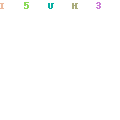Terming the KMDA’s move as the rarest of rare instance in which a government agency had taken to court an environment order that was based on recommendations of senior government officials, including the chairman of statutory bodies like the environment department and Kolkata Improvement Trust (KIT) that was in charge of the Lake’s upkeep and preservation till it was merged with KMDA a couple of years ago, state pollution control board’s former law officer Biswajit Mukherjee said it could have a serious snowballing effect on society.
“Senior officials of government agencies like the West Bengal Pollution Control Board, West Bengal Biodiversity Board, Botanical Survey of India and Zoological Survey of India were part of the expert committee that submitted an Environment Impact Report of Rabindra Sarobar, following which the order to insulate Sarobar from any religious or social function was taken to preserve its biodiversity. The WBPCB chairman was entrusted with the task of editing the EIA and publishing it in the form of a book,” said Naba Datta, secretary of Sabuj Mancha, a platform of environmental groups and individuals with green concerns.
Subhas Datta, whose petition before the Calcutta High Court green bench over Sarobar’s conservation was subsequently transferred to NGT and led to the ban order, said KMDA’s mandate was to maintain the Lake for which funds were provided under the Naitonal Lake Conservation Scheme by the ministry of environment and forest.
“It’s extremely perplexing that affected parties — representatives of Chhath devotees like Bihari Samaj and Bihar Nagrik Sangh — have not moved the court. Instead, KMDA, which is a government body and is entrusted with the upkeep of Sarobar, has taken such extraordinary steps to push for Chhath that will pollute the Lake. There may be differences in opinion on how much pollution will happen but there is absolutely no doubt that if thousands of people assemble there to perform rituals, there will be pollution,” he said.
Senior high court advocate Siddhartha Mitra, who has taken up many environmental cases pro bono, said KMDA’s action had set a dangerous precedent. “We are a secular state and KMDA is a government agency. It should in no way get involved in the promotion of a religious festival. The court has not said that Chhath Puja should stop. It has only called for the conservation of an ecologically sensitive waterbody that draws hundreds of species of birds and other fauna to be left undisturbed from such religious functions. When the cracker ban was imposed during Kali Puja and Diwali, it was for the environment and not against any religion. Very correctly, the government did not go to a superior court against it,” he pointed out.
A KMDA official said the decision to move Supreme Court had been taken to not just protect the interest of Chhath devotees but also prevent environment cost being slapped on the agency and KMDA officials being docked for contempt of court. “Of course this is not KMDA’s mandate. But we have failed to implement the order. This was the only option left before us: either get the NGT order vacated or ensure compliance with active role of law enforcement agencies following the Supreme Court order,” he added.
KMDA chairman Firhad Hakim said the agency had prepared venues — both natural and artificial waterbodies — to serve as alternatives to Rabindra Sarobar following the high court order.
Source: https://timesofindia.indiatimes.com/city/kolkata/which-side-are-you-on-citizens-ask-kmda-the-lake-custodian/articleshow/79289722.cms



